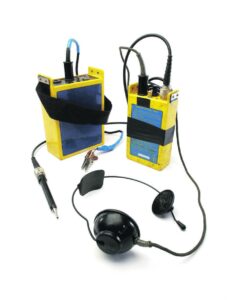BT engineers and tone sets
Engineers working for BT use “tone sets” when “pairing out tones” during installation or maintenance of telephone lines. Tone sets are oscillators and amplifiers used to detect lines and faults on lines.
Our clients are mainly engineers and former engineers who have suffered hearing problems caused by the sound of the tone sets and are now taking action for their hearing loss. Some BT engineers have also suffered hearing health problems when working in noisy telephone exchanges in particular the older strowger or director equipment.
Other engineers have suffered hearing health problems whilst using, or working close to, kango hammers, jackhammers, pole erection units and mole ploughs without hearing protection. Most of our clients have been unaware that they have been exposed to excessive noise when using “tone sets”.

BT response to hearing loss claims
The Hugh James BT hearing loss team has led the BT hearing loss litigation for many years. It was as a direct result of court action pursued by Hugh James solicitors that BT made general admissions that the green and unmodified yellow tone sets emitted excessively high noise levels, that could cause damage.

